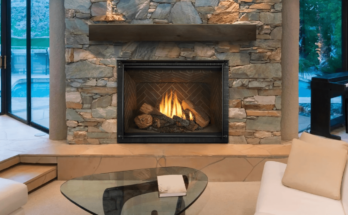There is no doubt that you need to know how to ask the right questions when selecting a trustworthy and skilled roofer. It enables you to assess their qualifications, understand their approach and materials, and establish clear expectations. By investing time in asking the right questions, you can ensure that your roofing project is in capable hands, providing you with a durable and secure roof for years to come. In this article, we’ll share eight critical questions you need to ask your roofer before starting your project. Keep reading!
Understanding the Roofing Process
Before you start any roofing project, you have to understand the process that your chosen roofing contractor will follow. This gives you an insight into what the job entails and prepares you for any potential disruption that may occur during the work. An experienced and reputable roofing contractor should be able to give a step-by-step overview of what the work involves, from inspection to the cleanup process. This will help you plan accordingly and also ensure that both you and your contractor are on the same page.
By delving deep into these potential issues, you could also uncover how experienced your roofer is. Their approach to common problems could tell you if they’re seasoned professionals or just start-ups. Asking questions will not only give you peace of mind, but it also could give you an idea of how much does the average roof replacement cost. By understanding this, you can anticipate additional costs or delays. Roofing problems like leaks, moisture damage, or rotten decking aren’t always apparent until work has started on the roof.
Do You Have the Appropriate Insurance and Licenses?
In the construction industry, encountering mishaps and accidents is not a rarity, and roofing is no exception. You need to be sure that the roofer you hire is licensed and insured. On the one hand, a license proves that the contractor adheres to industry standards and regulations. It also implies that they have passed the tests and have the skills required to carry out the job. On the other hand, insurance shields you from any liabilities that may arise during the roofing project. Always do your research to be sure the roofing company you work with is legitimate.
For instance, if a worker gets injured while working on your rooftop, the roofer’s insurance should cover their medical expenses and any compensation if required. This spares you from any unforeseen expenses and potential legal issues. If the roofer fails to provide proof of insurance or licensing, it’s a serious red flag. You should never risk working with uninsured or unlicensed contractors, no matter how enticing their prices might be. Doing so could leave you liable for accidents, poor workmanship, or damages.
Will You Utilise Subcontractors?
Subcontracting is often a common practice in the roofing industry. Some contractors may hire subcontractors to handle certain aspects of the job, especially if it’s large or complex. While this is not necessarily a bad thing, you need to know who will be present on your property and who is responsible for supervising the work. If the roofer uses subcontractors, ask whether they are insured and experienced. Keep in mind that the quality of work you receive will directly depend on the people who do it.
You need to be confident that anyone working on your roof is qualified and capable. The issue of payment also comes into play. Ask the roofer who you will be paying and how payments will be handled. Some contractors might require you to pay the subcontractors directly, while others will include their pay in your overall roofing cost.
What Provisions Are In Place for Weather Events?
Roofing work heavily depends on weather conditions. Extreme heat, rain, hail, or wind can cause substantial delays and could even damage the work in progress. Therefore, it’s crucial to ask your roofer about their weather-specific policies and provisions. A good roofer will have an actionable plan for unforeseen weather changes. For instance, they might cover your roof with tarps or plastic covers in case of sudden rain while the work is ongoing. They may also choose to reschedule the work to a day with better weather forecasted.
Moreover, you should also ask them how they handle delays due to weather. Will they prioritize your project once the weather improves? Can they guarantee they’ll finish your roof before the onset of the rainy season? Knowing these details beforehand can save you a lot of stress and inconvenience later.
How Will Additional Charges Be Handled?
Often, when roofing work begins, contractors may uncover issues that were not evident during the initial inspection. These could be things like rot or water damage. Your roofer should be transparent with you about these possible issues, and he should explain how these will impact the total cost. Ask your contractor how these additional charges will be handled. Will they inform you of the additional cost before they begin the additional work, or will you be surprised by the additional charges when you get the bill?
Knowing this upfront can help you plan your budget, and it will prevent any unpleasant surprises at the end. Trust is an essential aspect of any client-contractor relationship. A credible contractor will always agitate for open and transparent communication to ensure that their client is aware of what’s happening every step of the way.
What Is Your Cleanup and Waste Disposal Plan?
Roofing jobs can create a large amount of debris and waste, including old shingles, nails, and other materials. It’s important to ask your roofer how they plan to clean up and dispose of this waste. The last thing you want is to be left with a pile of debris in your yard or a dumpster blocking your driveway for days or weeks after the work is completed. Good roofers will often include a cleanup and waste disposal plan in their proposal. This schedule should detail how and when they’ll clean the work site. Mold exposure can be dangerous, so there should be a specific plan for dealing with these toxic substances.
Ask if they’ll bring a dumpster and how long it will be on your property. Well-established and professional roofing companies will have this well-planned. Ask about their plan for protecting your property during the work too. For instance, how will they ensure that your windows, gutters, or landscaping aren’t damaged during the roofing process? A thoughtful and detailed plan is a good indication of a professional roofer. This will also inform you on how to store your belongings to protect them during the process.
What Is Your Warranty Policy?
Finally, it’s vital to inquire about the roofer’s warranty policy. This includes both the manufacturer’s warranty for the materials used and the contractor’s workmanship warranty. The former covers any defects in the roofing material while the latter covers errors in installation or the construction process. Learning about the specifics of both warranties is vital because they protect you from shoddy work and inferior materials.
If your new roof begins to leak due to poor installation, your contractor should come back to fix it at no additional charge. Otherwise, you’ll be forced to use more of your hard-earned cash for repairs, which can be costly. The roofer should provide all warranty details and duration in writing, and remember, not all contractors can offer manufacturer warranties that include coverage of the contractor’s workmanship.
As this article illustrates, by asking these questions, you will surely navigate the roofing process with confidence and ease. Roof maintenance and replacement are valuable for your home’s condition and safety, so it’s a worthwhile project to take on. You just need to be sure that you get the best results possible. Remain knowledgeable and vigilant – after all, your home is a significant investment worth protecting!




